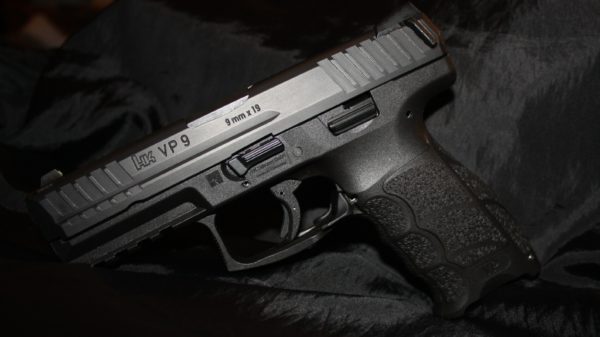
The recent mass shooting in Hamburg, Germany brought a predictable anti-gun reaction from many officials in that country, according to various published reports.
And that resulted in a reaction from a leading U.S. gun rights organization.
The Guardian reported that German authorities are looking at possible new restrictions on gun ownership following a mass shooting in Hamburg that left seven people dead at a Jehovah’s Witness hall.
Interestingly, the newspaper included an unborn child in the tally of victims.
According to The Guardian, the killer was identified as 35-year-old Philipp Fusz. It’s still not clear why he attacked the Jehovah’s Witness hall. What has emerged is information that an anonymous letter was received about Fusz about two months ago, apparently about his mental health.
CBS News reported Fusz used a handgun in the attack, which he was licensed to own. The gun has been identified as a Heckler & Koch semiautomatic pistol.
Reports say he was contacted by police at his Hamburg residence who issued a warning about finding a live cartridge on top of his gun safe. That’s how strict German gun laws are now, so a legitimate question arises about what might come next.
Fusz had allegedly “fallen out” with members of the Jehovah’s Witness group, where he was a member until about 18 months ago. The dispute was over a book he had written and self-published, The Guardian said, which he apparently compared to the Bible.
The Citizens Committee for the Right to Keep and Bear Arms issued a statement noting that proposing stricter gun control laws is the “typical reflex from politicians following such a tragedy.”
“Anti-gunners who claim mass shootings don’t happen anywhere but America are once again proven wrong,” said CCRKBA Chairman Alan Gottlieb. “More importantly, they should acknowledge that restrictive gun laws do not prevent evil people from committing violent crimes, and that they leave innocent people vulnerable to deadly attacks.
“The lesson to be drawn from Hamburg,” he continued, “and any other such incident, is that no law or set of laws can truly prevent some determined individual from committing mayhem. So, the logical solution is to make it easier for people to defend themselves in such situations.”
Gottlieb said it has “never made sense anywhere to disarm honest citizens in an effort to keep criminals and crazy people from committing violent crimes.”
Perhaps the right to bear arms makes the United States unique, or at least considerably different than in European nations, where nothing close to the Second Amendment exists. In this country, more than 22 million people are licensed to carry concealed firearms for personal protection, and with 25 states allowing permitless “constitutional carry,” an unknown number of additional people are likely armed.
Critics of permitless carry say it makes the police and public unsafe, yet they have never acknowledged that criminals have always carried without a permit.
Gottlieb contended that armed citizens can make a difference in an attack, whether in Hamburg or anywhere in the United States.
“We’ve seen what happens when legally-armed citizens can fight back,” he recalled. “Would-be mass shooters were stopped last year in Indiana and West Virginia by good people with guns. Hamburg is a tragic reminder that restrictive gun laws cannot guarantee public safety, and that being vigilant and able to fight back at least levels the playing field.”